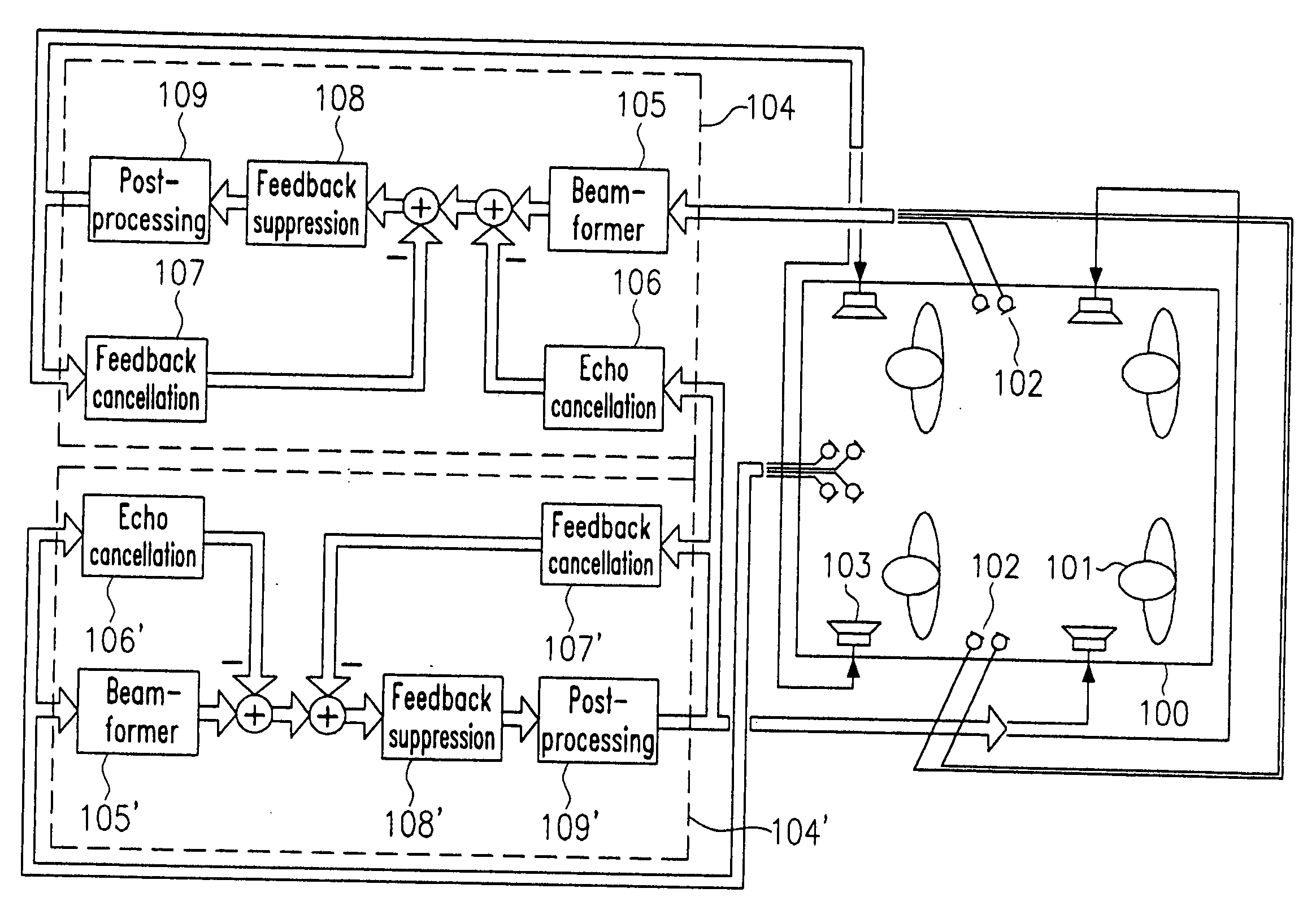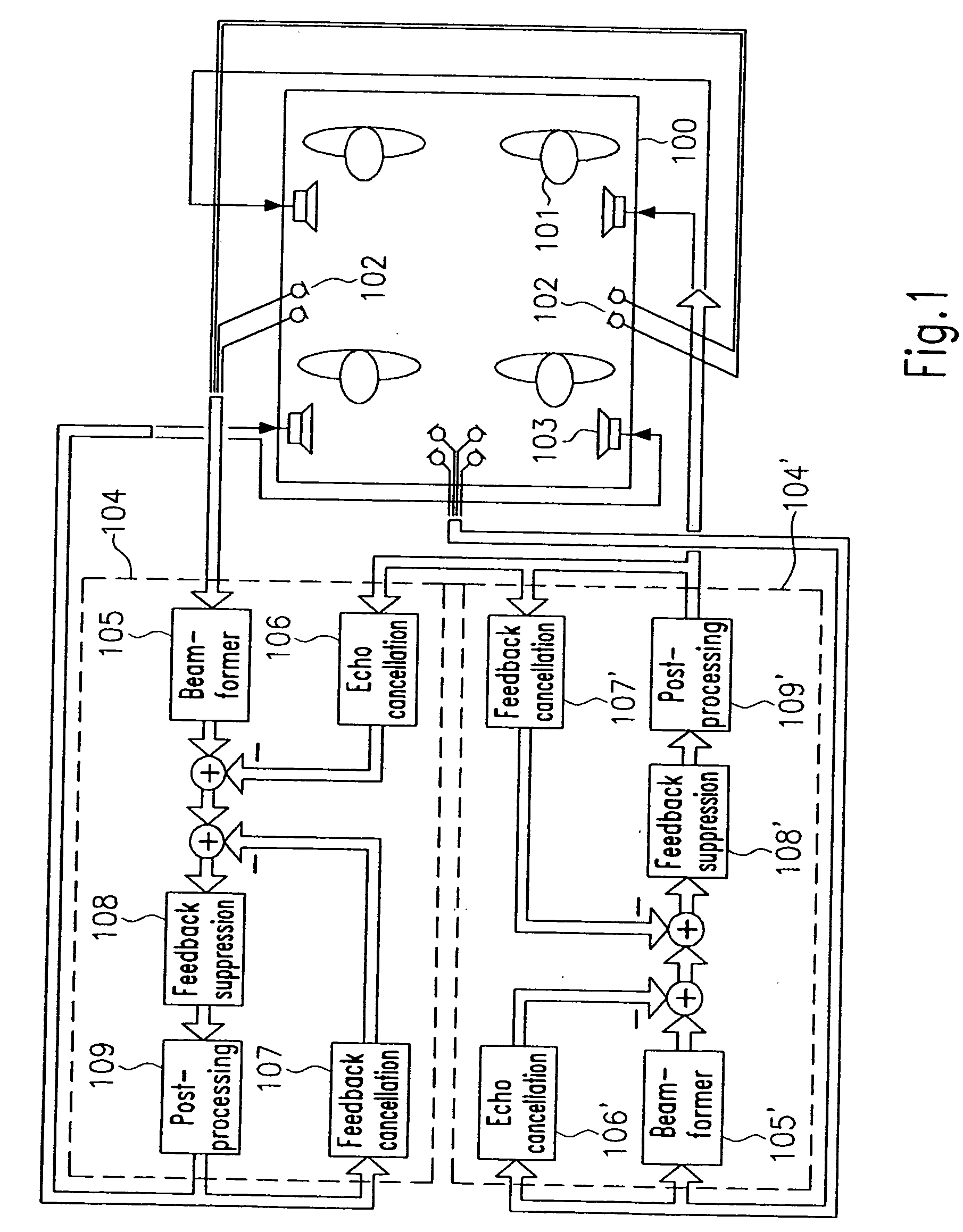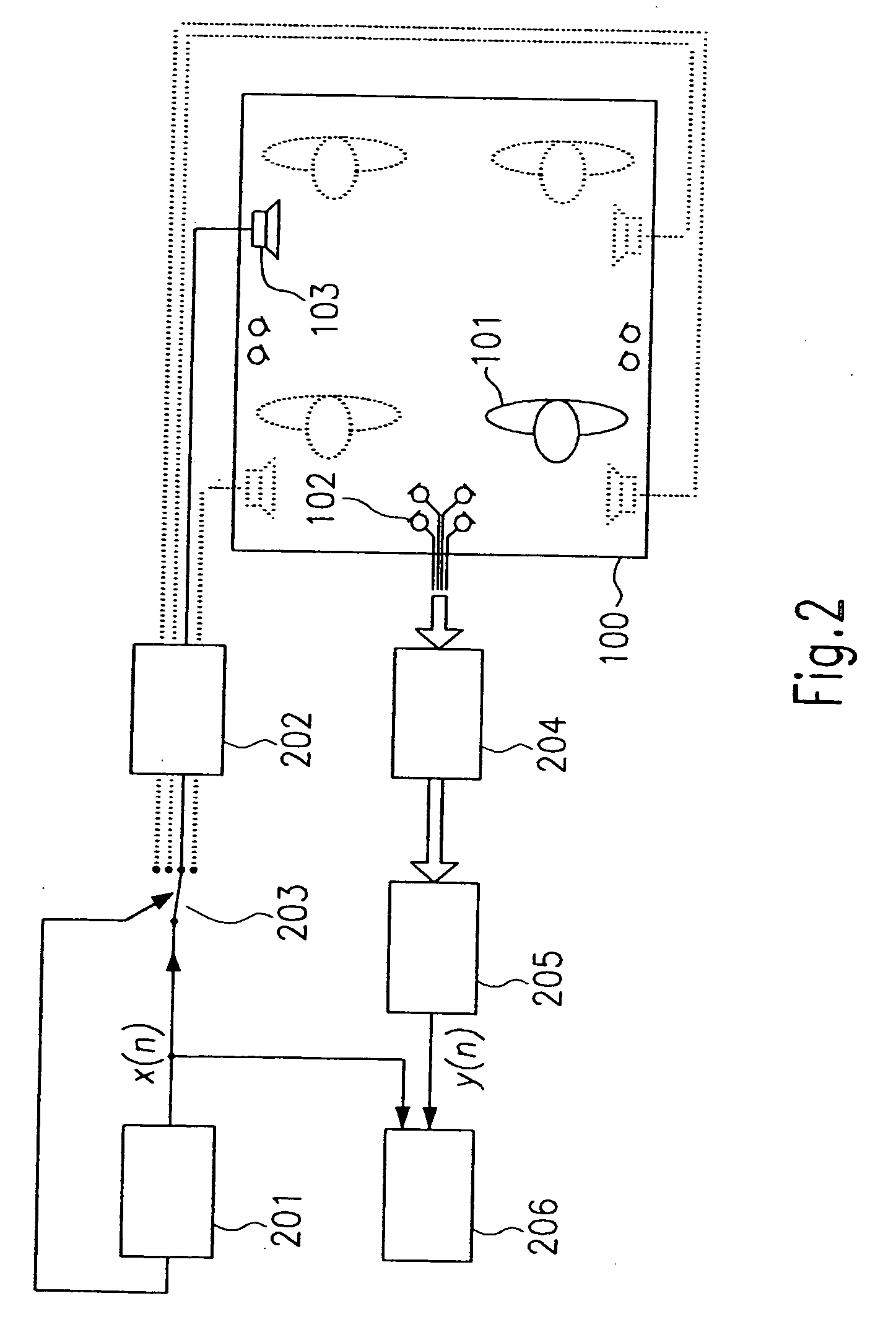Indoor communication system for a vehicular cabin
a communication system and vehicular cabin technology, applied in the direction of adaptive network, loudspeaker spatial/constructional arrangement, sound producing device, etc., can solve the problems of interference with communication between the people in the cabin, engine and wind noise may create a loud background noise, and difficult communication between different people inside the vehicl
- Summary
- Abstract
- Description
- Claims
- Application Information
AI Technical Summary
Benefits of technology
Problems solved by technology
Method used
Image
Examples
Embodiment Construction
[0018] A system automatically determines an equalizing filter characteristic for a communication system within a vehicular cabin, such as a passenger compartment. The system may include a microphone and a loudspeaker (e.g., speaker or loudspeaker). The system may transmit a predetermined test signal through the loudspeaker. The microphone may receive the test signal to obtain a received test signal. The system determines a transfer function in the frequency domain based on the test signal and the received test signal. Based on the transfer function, the system determined the equalizing filter characteristic.
[0019] Alternatively, a microphone array may be used in place of a microphone. A beamformer may be used to beamform signals from the microphone array. In this case, the system may transmit a predetermined test signal through the loudspeaker. The microphone array may then receive the test signal and the beamformer may beamform the signals received by the microphone array to obtai...
PUM
 Login to View More
Login to View More Abstract
Description
Claims
Application Information
 Login to View More
Login to View More - R&D
- Intellectual Property
- Life Sciences
- Materials
- Tech Scout
- Unparalleled Data Quality
- Higher Quality Content
- 60% Fewer Hallucinations
Browse by: Latest US Patents, China's latest patents, Technical Efficacy Thesaurus, Application Domain, Technology Topic, Popular Technical Reports.
© 2025 PatSnap. All rights reserved.Legal|Privacy policy|Modern Slavery Act Transparency Statement|Sitemap|About US| Contact US: help@patsnap.com



